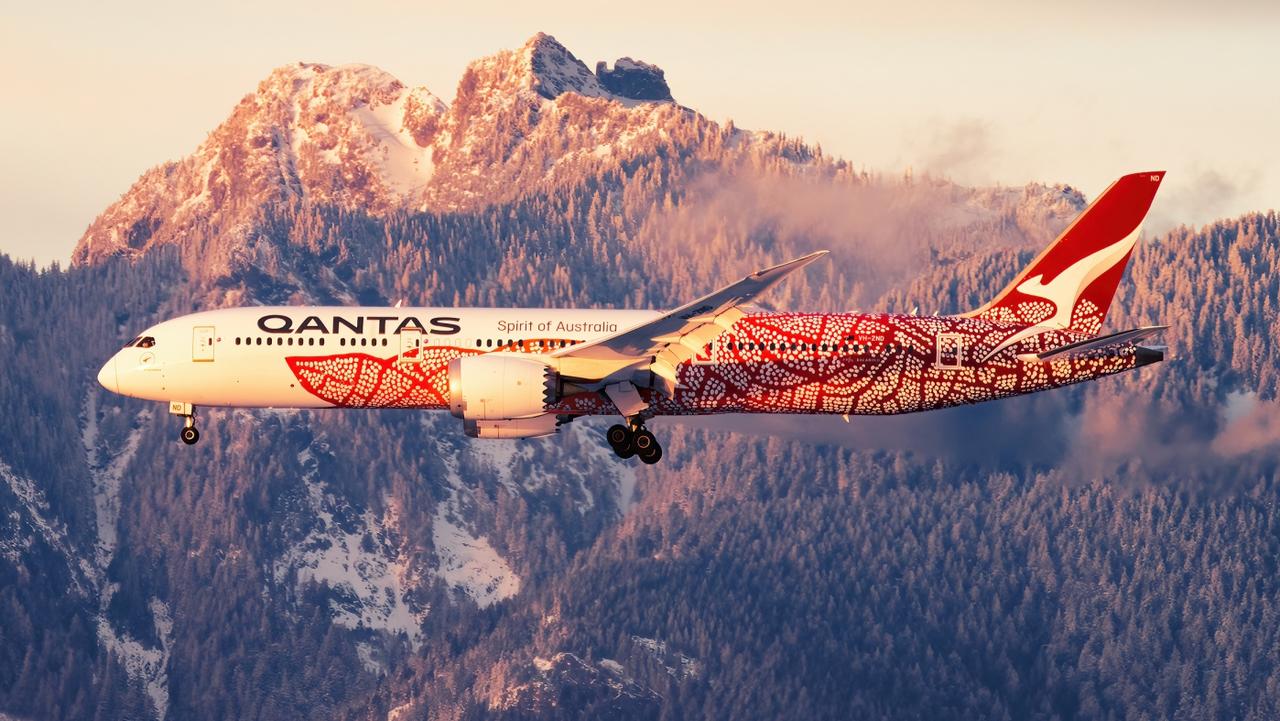Strategy shift: Why APA’s boss decided to call its quits
The board of this $13bn infrastructure giant wants its executives to spend more time on a rapidly-evolving market closer to home.
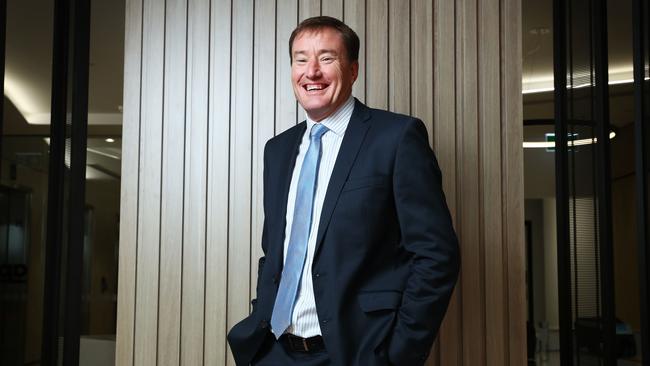
Business
Don't miss out on the headlines from Business. Followed categories will be added to My News.
One of the first decisions APA chief Rob Wheals made when he became chief executive was to ask the pipeline operator’s long-serving strategy executive Ross Gersbach to relocate to Houston to step up the hunt for US acquisitions.
Three years later APA’s board, under no-nonsense former AGL chief executive Michael Fraser, has publicly called time on the strategy which has so far yielded little but presented dozens of potential targets.
Instead Fraser wants APA’s strategy and management focus to be spent on developing opportunities closer to home, particularly positioning the dominant gas pipeline owner as playing a role in the green energy transition. Any US push would put APA years behind in the rapidly-evolving market for green infrastructure.
With Wheals’ centrepiece strategy pulled from under him and a message about a shift in direction from the top he had little choice but to resign. APA’s next CEO, who is yet to be named, is likely to steer the company through a period of consolidation and infield development over near-term big ticket acquisitions.
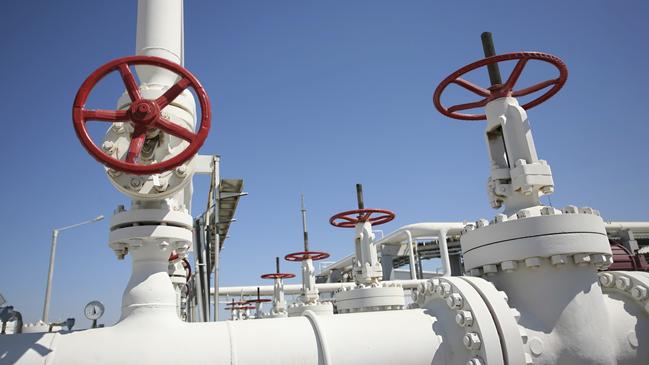
Wheals told staff on Monday APA was in a strong position both financially and operationally. There has been no falling out with the board and he planned to remain until the end of September. Significantly, Wheals will present the company’s annual results on Wednesday where he plans to deliver APA’s interim 2030 commitments on emissions reduction.
“Reaching my decision has been a process, and there are several things that have gone into this decision. It has been an intense three years in the top job, made more challenging by the unprecedented changes in the energy industry,” Wheals said.
Gersbach is still in Houston and the small team he heads there will be disbanded. Interest in North America started under previous APA chief Mick McCormack who was initially studying gas storage options in the US, but Wheals turned it into a formal strategy looking to leverage similarities with Australia including long-life regulated assets.
Despite the strategy shift, a shake-up like this isn’t meant to happen in an infrastructure company like APA where management and board stability has been a hallmark. Investors have long backed APA for its promise of long-dated and predictable returns and funding additional growth in a new market would have come at a high cost. Its safe haven appeal increased significantly in a period of high global inflation.
The actions of APA’s board is a case of an experienced board pulling up the international expansionism of its CEO.
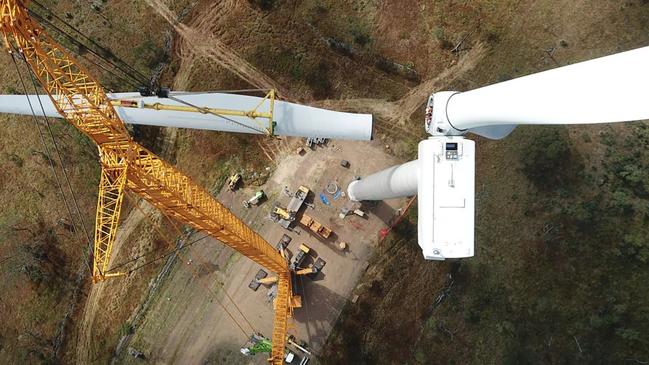
On Monday another company in a different sector – casino operator Star Entertainment – delivered a loss amid ongoing fallout from a board that had put too much faith in a management team and not enough oversight. This led to painful regulatory action for Star and which is now facing a long rebuild following a wholesale executive and board clean out.
APA’s board under Fraser had initially endorsed Wheals’ well-telegraphed plans to expand in North America but had become impatient about how after three years the process was being dragged out and the renewables revolution was raging.
The US push came as APA was last year involved in a $10bn bidding war for Victorian-based poles and wires power operator AusNet which ultimately went to Brookfield. The strong feedback from APA investors at the time, including 14 per cent shareholder UniSuper, was that it didn’t want the pipeline company to overpay for assets in a new market or to take on more debt in a rising interest rate environment.
Wheal’s initial rationale for moving into the US was to diversify income away from its massive Australian footprint where competition rules were putting limits on its expansion ambitions.
He saw the US as providing an abundance of low-priced natural gas and continued growth in demand, particularly as a replacement for coal-fired power plants and becoming a major LNG exporter. APA saw its own business model slotting in easily in the US.
APA narrowed its US screening down to 170 interstate pipelines and 145 local distribution companies which promised high annualised returns. But acquisitions were increasingly crowded out by the deep pockets of pension funds including Australian super funds chasing the same long-life returns.
-
Ampol primed
The bad news for drivers is that global fuel markets remain “finely balanced” which means that even after some relief they will remain elevated.
This is the view of Ampol chief Matt Halliday who heads up the nation’s biggest fuel retailer and has kept his business focused on keeping the petrol pumps flowing despite the deep strains across global oil markets over the past six months.
While supplies are flowing again, the big test will be the European winter with diesel stocks there still tight and demand rising in Asia. More locally, Australian fuel sales are likely to shift higher as the economy and air travel resumes after Covid-19 disruptions.
Surging petrol prices have finally found the limits of the rule of fuel retailing: that is sales generally hold constant despite the cost. But as petrol prices soared, Ampol saw fewer on the road.
The picture is clouded given in the first six months of the year more people were staying at home as Omicron swept the east coast, and Sydney suffered a string of torrential storms. But some softening of motorist demand for petrol – which for Ampol was down almost 6 per cent – was on the back of reduced road trips where price played a role.
“We certainly did see an impact of higher fuel pricing and a degree of demand reduction,” Halliday says. There was also evidence of drivers shifting from high-premium petrol to mid-premium.
The looming expiry of the 22c fuel levy holiday at the end of next month is a matter for Canberra but he acknowledged it was a tough decision for the Albanese government to make as it faces budget pressures.
“We’ve certainly ensured that all the savings have been passed on over the last six months,” Halliday says.
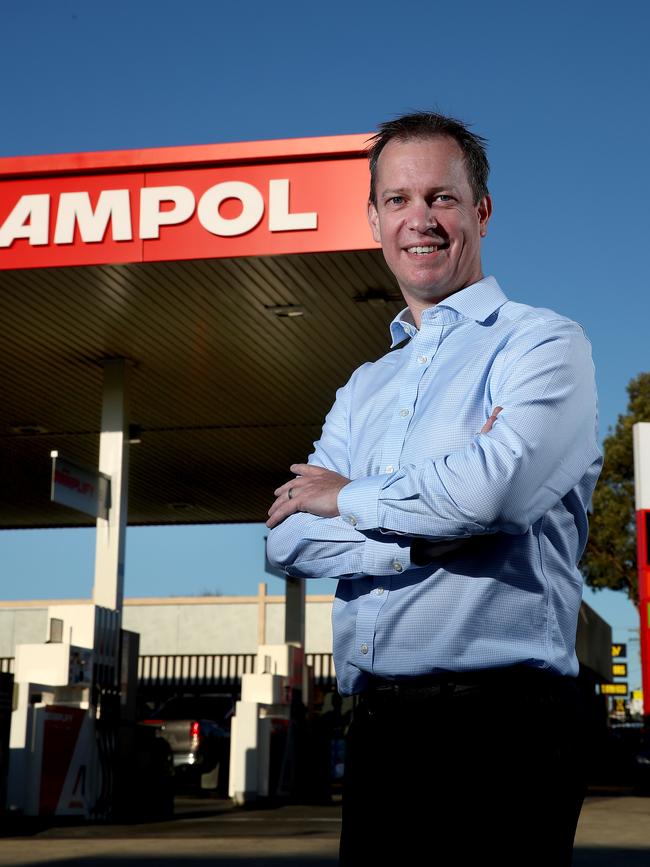
The dip in retail demand for petrol was the only soft spot for Ampol in its latest interim results as it rides the wave of the global energy disruption.
The crisis is powering Ampol’s profit, as the fuel retailer and refiner previously known as Caltex Australia delivered a near doubling in pre-tax earnings to $927m in the June half, easily beating expectations. Much of the boost was on the back of a surge in refining margins which widen as global oil prices shift higher. Ampol declared an interim dividend of $1.20 per share, representing a payout ratio of more than 60 per cent.
Ampol’s position today contrasts with just a year ago when the company was openly considering shutting down its Lytton refinery in Brisbane – which produces up to 240,000 barrels per day – and becoming a pure fuel importer. Ampol faced an even tougher time through Covid when jet fuel sales collapsed and roads were quiet. Adding to pressure, the world was swimming in a glut of oil, forcing a compression on refining margins.
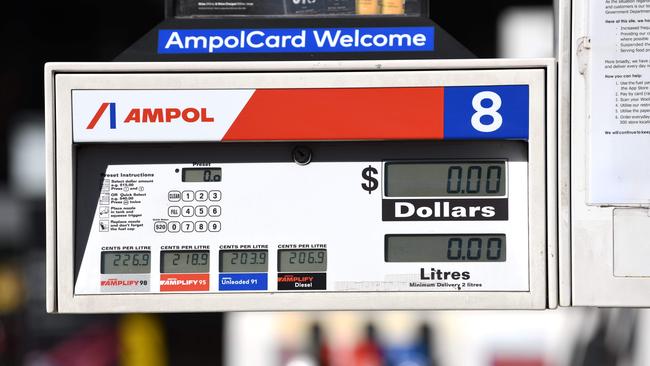
The Morrison government set up a $2.4bn bailout package for the nation’s two remaining refineries Ampol and Viva Energy’s Geelong plant to ensure they stay open. The program only channels funds when fuel prices are low and refining margins fall below a benchmark.
But today it is Ampol’s refining operations that are making all the difference delivering 60 per cent of group pre-tax earnings. Refining gives Ampol more control over its supply chain and fuel mix helping to boost profit margins. With oil prices likely to stay elevated for longer this means the economics have quickly shifted back in favour for owners of refineries.
Halliday says changing global oil markets means the importance of owning a refining business can’t be underestimated. But he notes they are cyclical and still need significant investment, particularly as fuel standards get tougher.
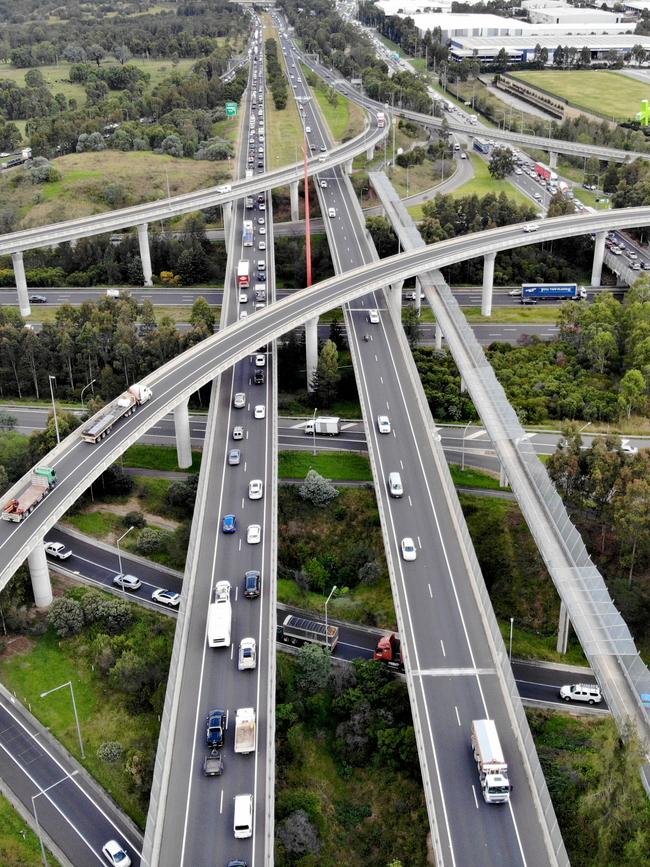
Just two years into the role, Halliday is at the very beginning of a longer-term green reset of Ampol. He is rolling out fast electric vehicle chargers across some 120 of its petrol stations including a target of 26 sites of trialling a single charging “pump” that several cars can plug into at once.
It is also in the early stages of researching hydrogen fuel for development in Australia, although this technology which is better suited for long haul trucking would be years away. More recently it secured a licence to become an electricity retailer and is trialling home-based electric charging stations with its employees. Over time it hopes to become a big player in energy in the home where electric vehicles will play a big part of the demand equation.
Halliday has also made a push offshore, through last year’s $1.9bn acquisition of NZ fuel retailing network Z Energy, which delivered a contribution of earnings of $13.7m for the June half.
johnstone@theaustralian.com.au
Originally published as Strategy shift: Why APA’s boss decided to call its quits


